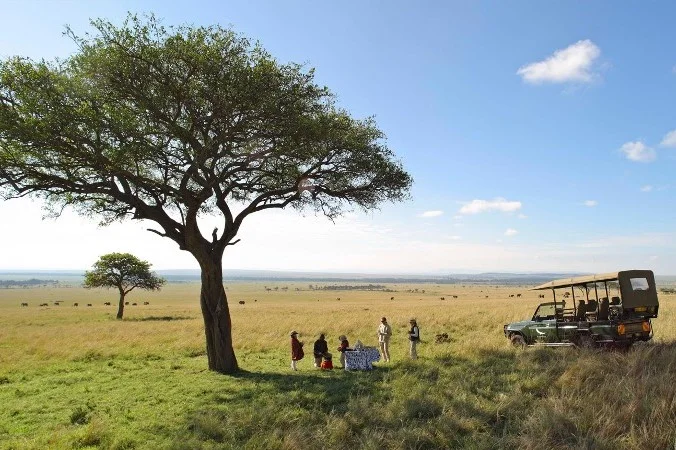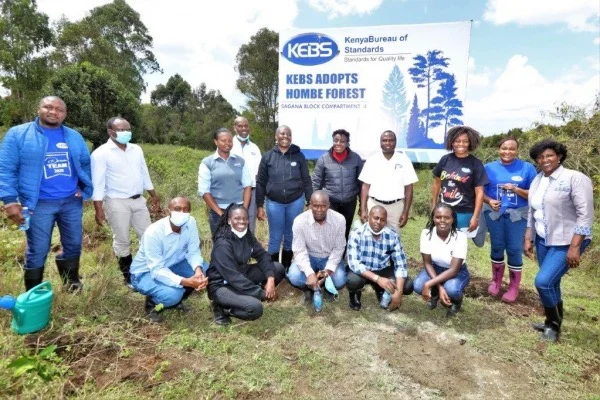Sustainable Tourism Practices – Ecotourism Kenya

Supporting Local Communities
As a general rule, smaller (and more expensive) lodges and camps tend to do more for local communities through employment, training, and the establishment of income-generating projects. These properties often find it easier (and cheaper) to replace wood-burning stoves with solar and wind power and to adopt responsible sewage and waste disposal methods. As environmental pressures increase in areas like the Maasai Mara, many camps are banning the use of firewood altogether, while others have installed constructed wetlands to recycle wastewater naturally.
Energy Management
Many hotels and lodges, especially those located away from urban centers, are now investing in alternative energy sources. Solar power is the preferred alternative, with most responsible properties using solar systems for electricity and water heating. While wind power is not as widely used yet, it is gaining interest thanks to local suppliers. Kenya has made significant strides in recycling organic waste to provide alternative fuel sources for water heating and cooking. With growing bans on fuelwood, particularly in national parks, fuel briquettes made from various waste materials are becoming more common. The Millennium Fuel Project in Nairobi is encouraging women’s groups to produce and sell these briquettes to safari camps and lodges in the Mara, helping to save the remaining forests from tree-felling and charcoal burning.
Waste Management
Hotels and lodges generate significant amounts of solid and liquid waste, and in remote areas without local council services, they must prevent sewage from contaminating the environment. Initiatives for managing solid waste include responsible purchasing, waste separation, and recycling. Many lodges and camps compost green waste for use in vegetable gardens and return non-degradable waste—such as tin, glass, paper, and batteries—to Nairobi for recycling by larger manufacturers. Managing liquid waste is more challenging, but interest in constructed wetlands for recycling wastewater is growing. Peer and guest pressure is also encouraging many camps and lodges to use biodegradable green detergents to improve gray water quality.
Water Conservation
Water is a scarce commodity in many of Kenya’s semi-arid regions, leading to conflicts between people and wildlife. Lodges play a crucial role in promoting water conservation awareness and practices, particularly in remote rural areas. Simple initiatives like encouraging guests to reuse towels and minimize water use are common. Many lodges are also implementing serious water conservation measures, such as restricting water pumping to certain times of the day, installing low-pressure showers, and promoting the use of recycled water and rainwater. While these measures may not always provide optimum comfort, guests are encouraged to appreciate how they help lodges coexist with water-starved communities, livestock, and wildlife. Additionally, many lodges and camps are growing trees and encouraging local communities to plant woodlots for sustainable firewood and catchment area protection. Guests are urged to inquire about and support their lodge’s water-saving initiatives.
Human-Wildlife Conflict Resolution
Efforts are being made to minimize human-wildlife conflict in areas outside Kenya’s parks and reserves. Interventions include fencing off protected areas, promoting community tourism enterprises, and compensating pastoralists for livestock killed and farmers for crops damaged by wild animals. These initiatives are led by various stakeholders, including private investors, local NGOs, and foreign conservation organizations. Local events such as the Rhino Charge four-wheel-drive challenge and the Lewa Safari Marathon raise funds for these initiatives. Guests are encouraged to learn about and support their lodge’s efforts to minimize human-wildlife conflicts in the area.
 Albania
Albania Algeria
Algeria Andorra
Andorra Argentina
Argentina Armenia
Armenia Australia
Australia Austria
Austria Azerbaijan
Azerbaijan Bahrain
Bahrain Belgium
Belgium Bolivia
Bolivia Brazil
Brazil Bulgaria
Bulgaria Cambodia
Cambodia Cameroon
Cameroon Canada
Canada Chad
Chad Chile
Chile China
China Colombia
Colombia Costa Rica
Costa Rica Croatia
Croatia Cyprus
Cyprus Czechia
Czechia Denmark
Denmark Ecuador
Ecuador Egypt
Egypt Finland
Finland France
France Georgia
Georgia Germany
Germany Ghana
Ghana Greece
Greece Hungary
Hungary Iceland
Iceland India
India Indonesia
Indonesia Ireland
Ireland Italy
Italy Jamaica
Jamaica Japan
Japan Jordan
Jordan Kazakhstan
Kazakhstan Kenya
Kenya Kuwait
Kuwait Latvia
Latvia Lebanon
Lebanon Libya
Libya Lithuania
Lithuania Luxembourg
Luxembourg Malaysia
Malaysia Maldives
Maldives Mali
Mali Malta
Malta Mexico
Mexico Moldova
Moldova Monaco
Monaco Morocco
Morocco Netherlands
Netherlands New Zealand
New Zealand Nigeria
Nigeria North Macedonia
North Macedonia Norway
Norway Oman
Oman

